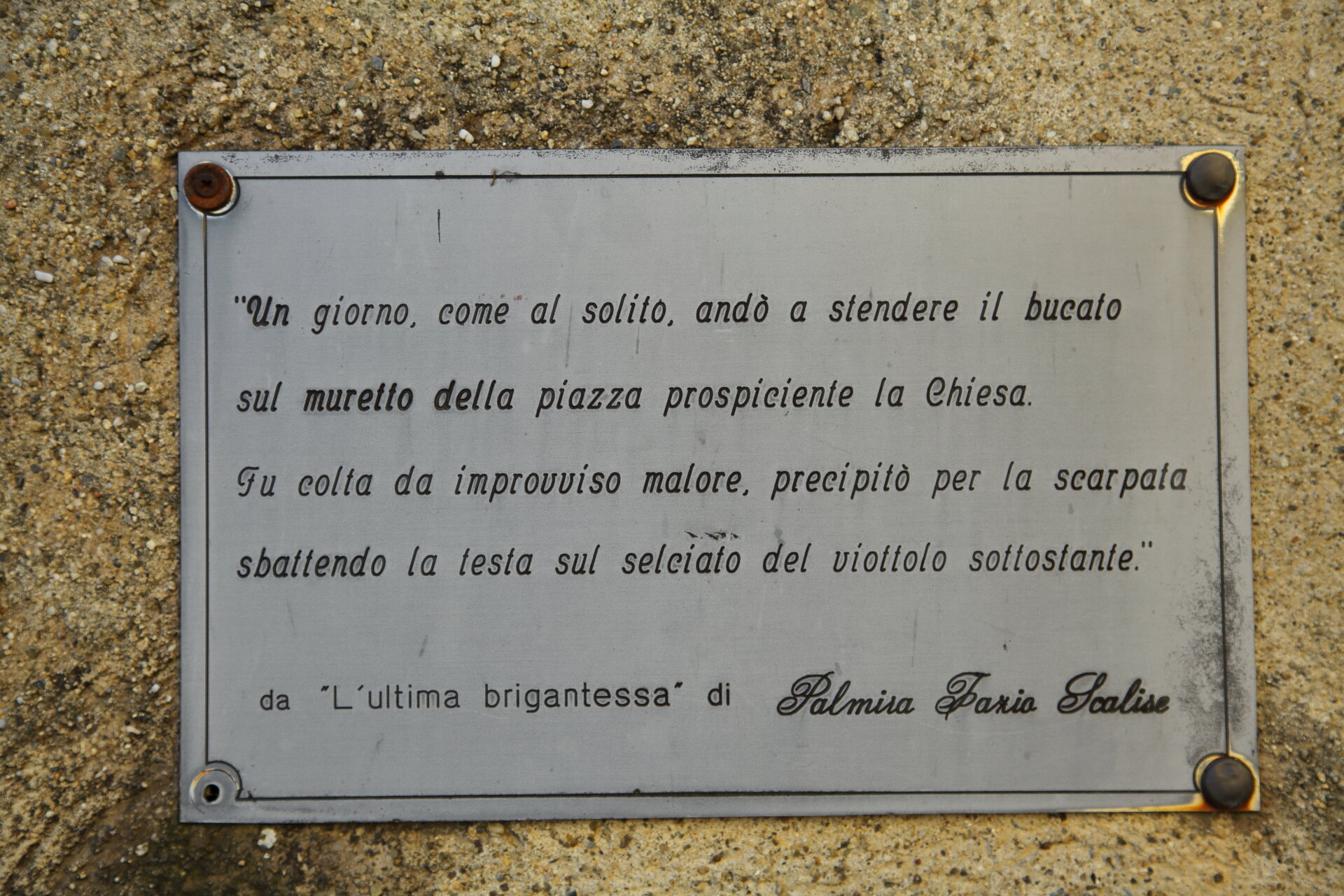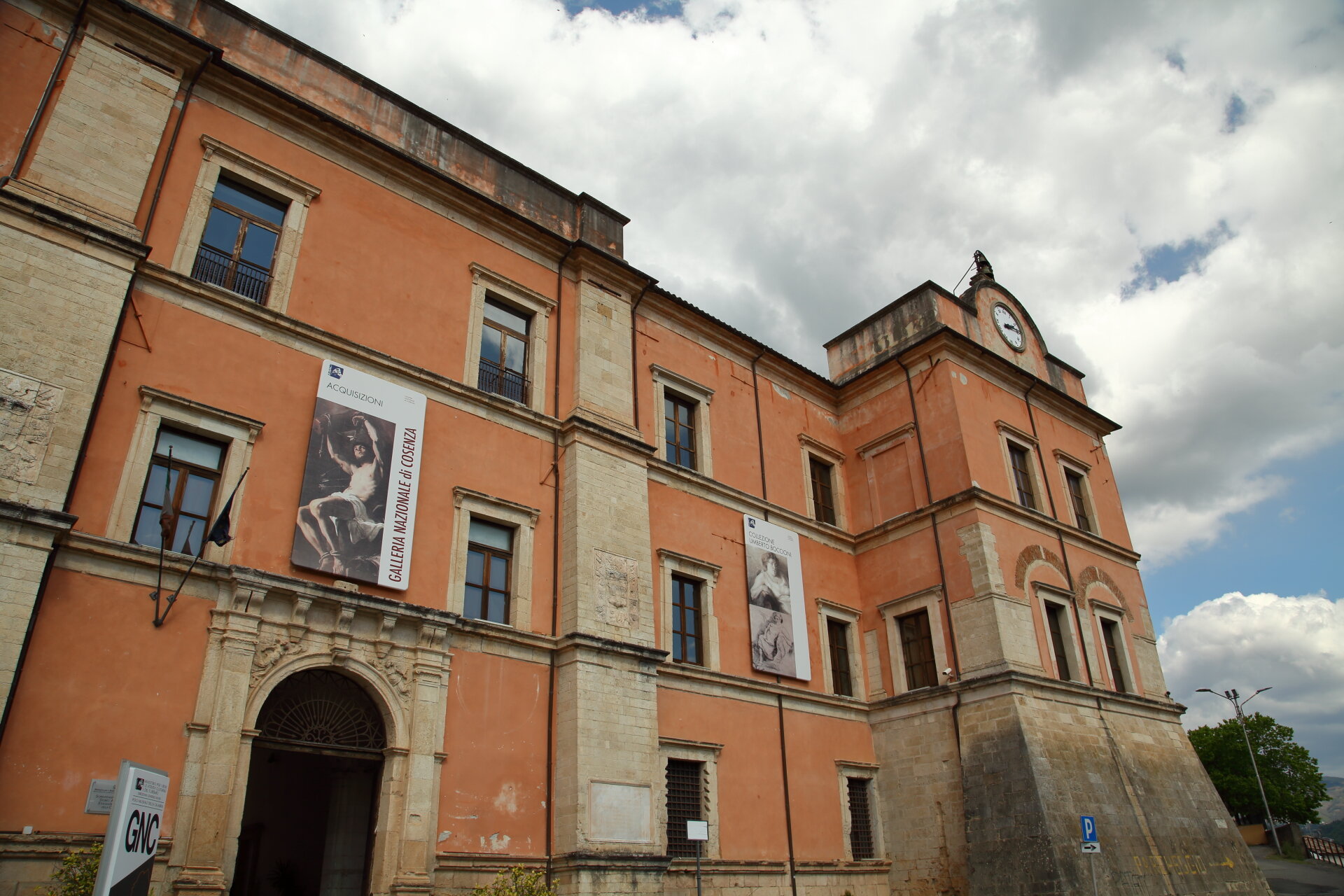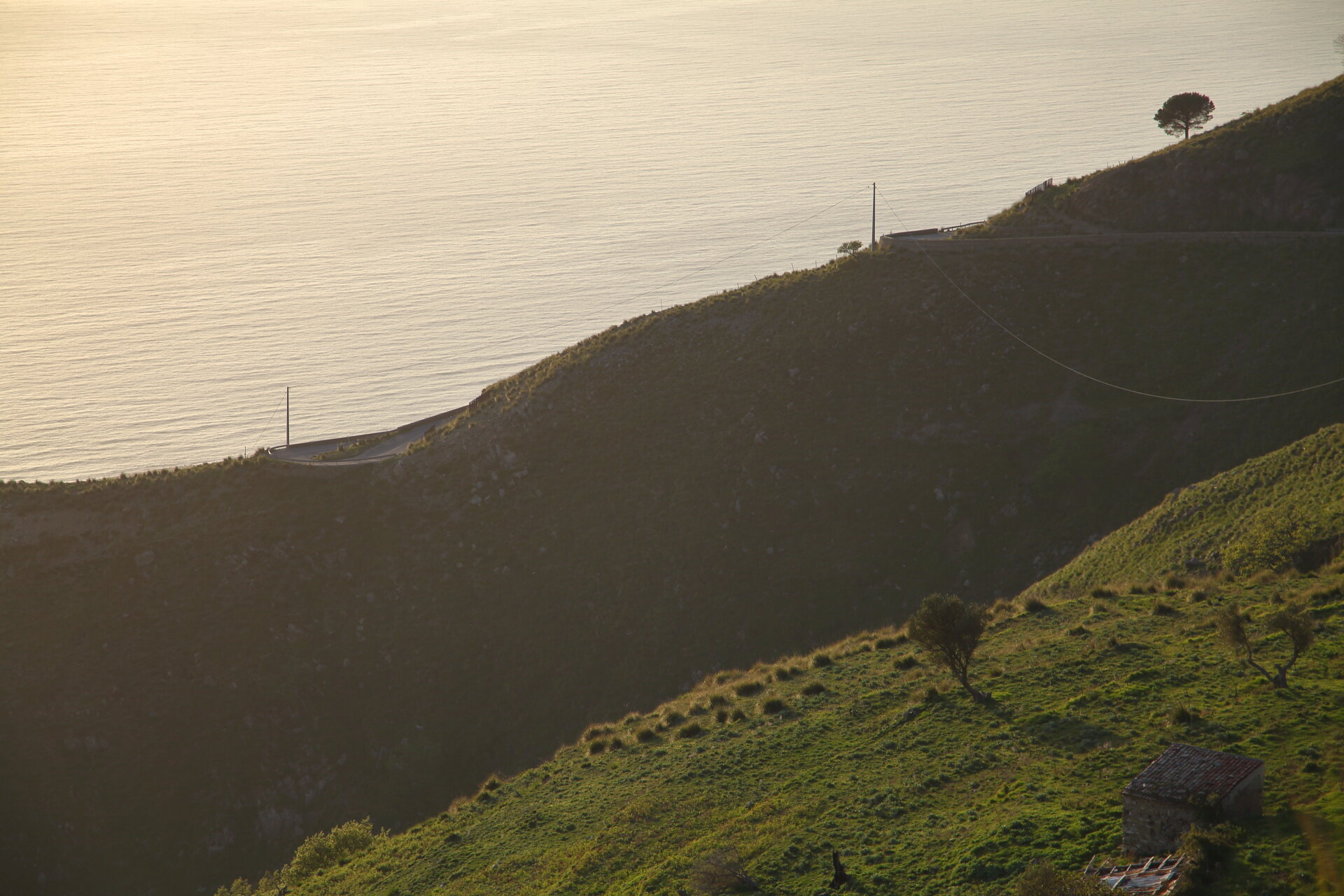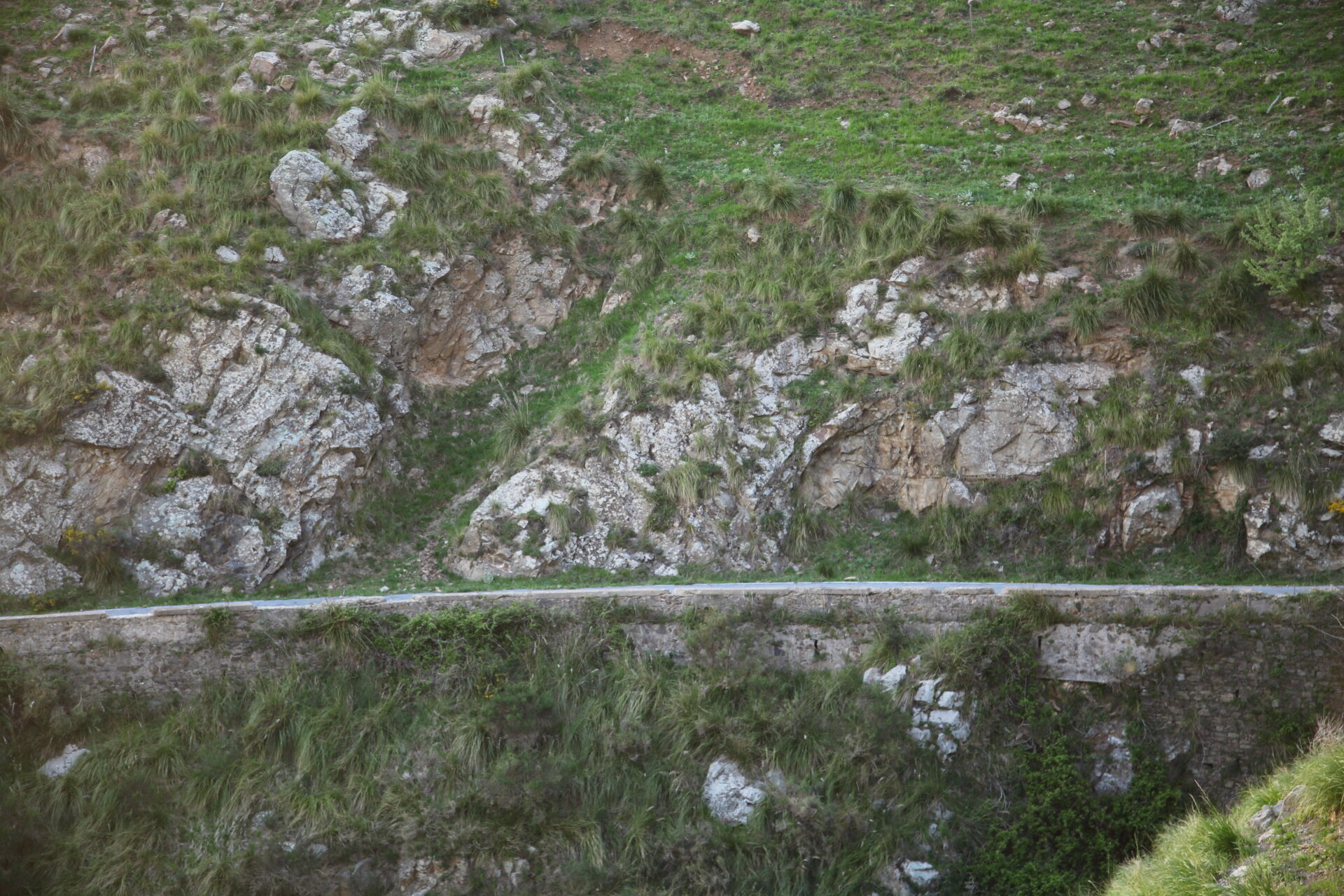
This one-day tour offers a dive into Helen Barolini’s novel, whose protagonist Umbertina is one of the most memorable characters within the Italian/American literary canon. We will follow the journey of Umbertina from Castagna, in Sila, to Paola, where she embarked on her journey to America, passing through Soveria Mannelli and Cosenza.
In this Community-based program, participants will experience her story of emigration by looking, through literature, at various aspects of Calabria from the 1880s to the present day. Lunch and dinner menus are inspired by the novel.

““What could it be to Tinuzza the goat girl that in antiquity her land was called Magna Graecia; that its city Sybaris had given the world its concept of luxury; that Plato had visited the flourishing center of Locri to learn from the masters there; […] that Hannibal had sulked in defeat of Crotone before evacuating Italy; and that Spartacus the gladiator had hid out in the Sila from the might of Rome? Rome to her was only the place where the baron, the pope, and now a king lived, all equally indifferent to the fact of her existence.””


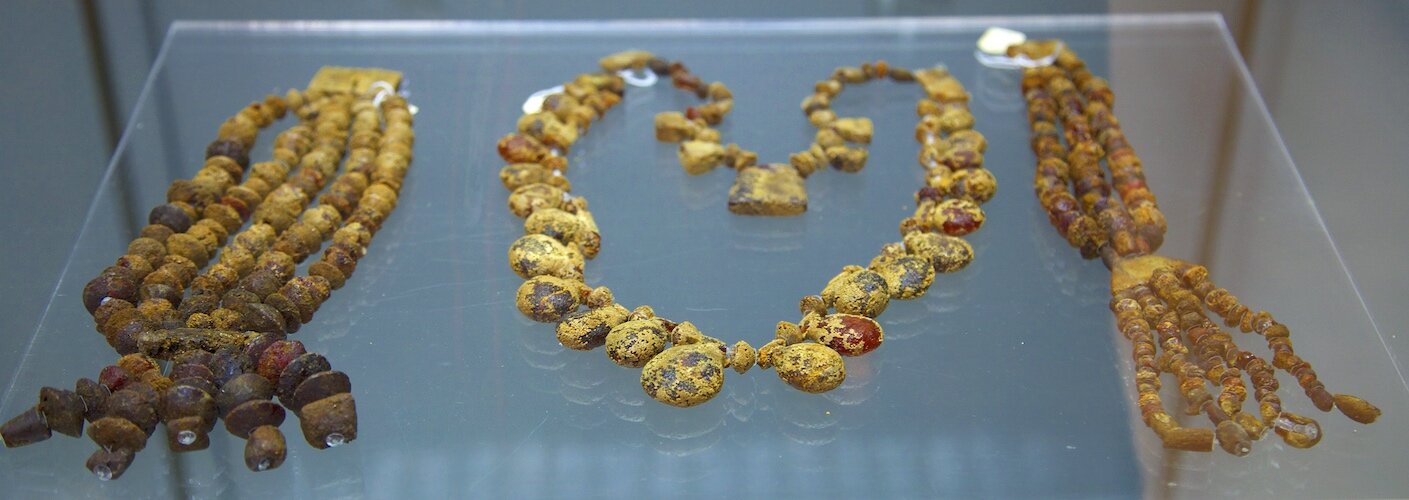
Oenotrian (Basiclisca-Calabrese) Amber from the Baltic Sea, Metaponto Archeological Museum

Castagna
10:00 a.m. arrival
12:00 a.m. departure
“Young men and women seldom met. On Sunday and holy days there was mass in the village church, where Don Antonio preached life’s hard duties and the obedience required of the villagers, while the men looked over the girls and the girls kept their gaze on their beads.”

Abbey of Santa Maria di Corazzo
12:15 a.m. arrival
12:45 a.m. departure
“Down in the valley she could see the crumbling walls of the old monastery, which, it was said, was built in remote times by men from the north called Normans. [...] His heart had been touched when he had left the main road from Soveria Mannelli and turned onto the valley where the Corace flowed past the Norman ruins. Inside, barely visible, was the dim souvenir of some past civilization that long ago had frescoed the walls with the life of Our Lord. Serafino’s eye recognized and took in gratefully the pilasters and arches of the transept, the vaulted apse, the fading fresco, the ogival windows and portals-none of which he could name or identify, but which spoke to his heart as nothing in the New World had.”

Umbertina's meal
Buffet lunch in picnic area
Variously aged goat milk and sheep milk cheeses.
Hard-boiled eggs.
Fried onions.
Wild herbs.
Bread made with corn and chestnut flower.
Goat or sheep meat.
Figs.
Panicelli (dessert made with raisins wrapped in fig leaves).
Wine.
Locally produced liqueurs.
agrituorism Alla Jumara

SS n.19 delle Calabrie
“ “Are you still a girl living under your father’s roof?” Umbertina chided her, and she spoke she knew she was chiding herself too. “or are you the wife of your husband and mother of his children, and a woman with work to do?” [...] “It is a curse to leave one’s home and the place where one is known to go among strangers,” said Cristina. And in her heart Umbertina acknowledged this truth. But she only answered, “We are doing this for our children, and they will not be strangers where they grow and work.””
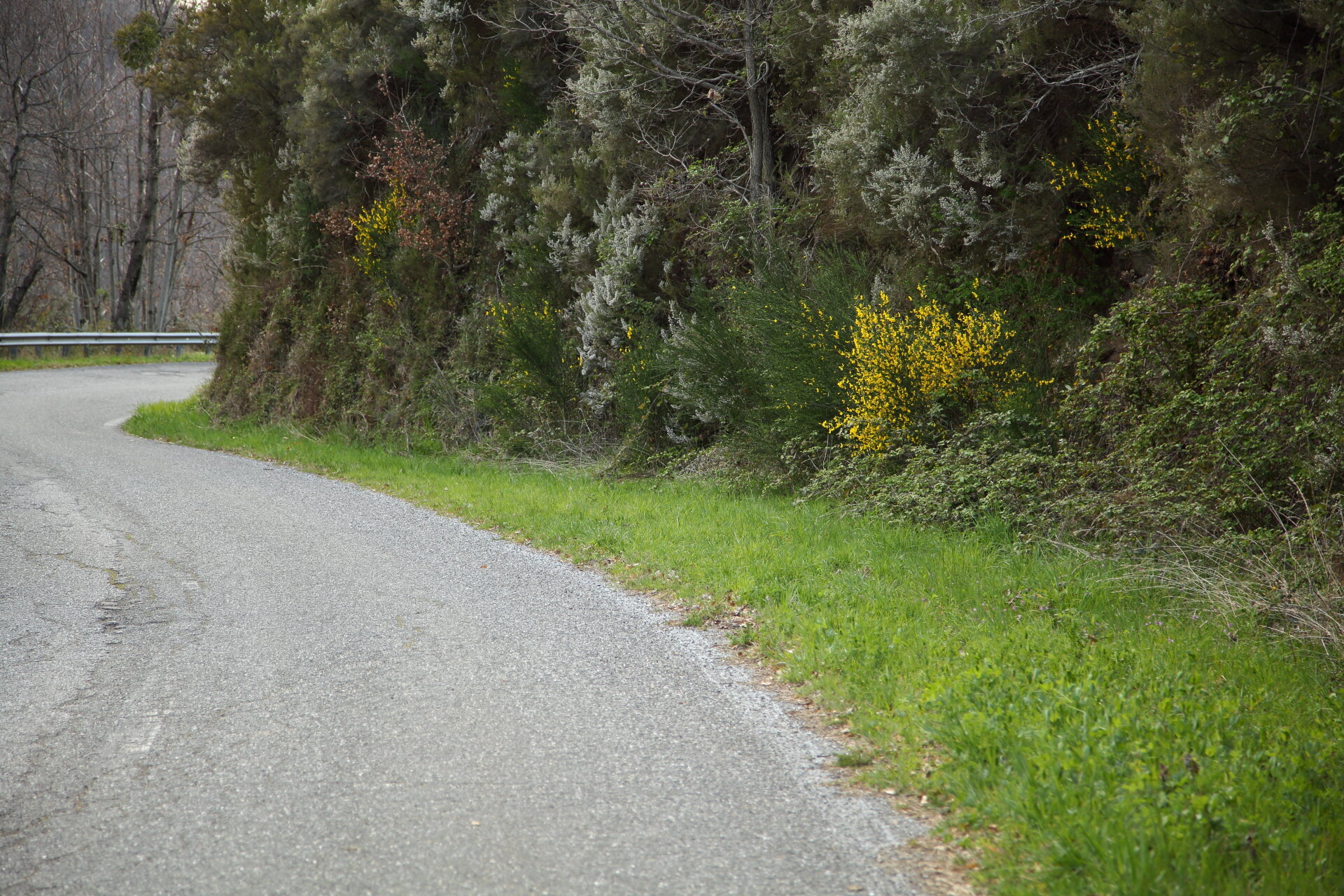
























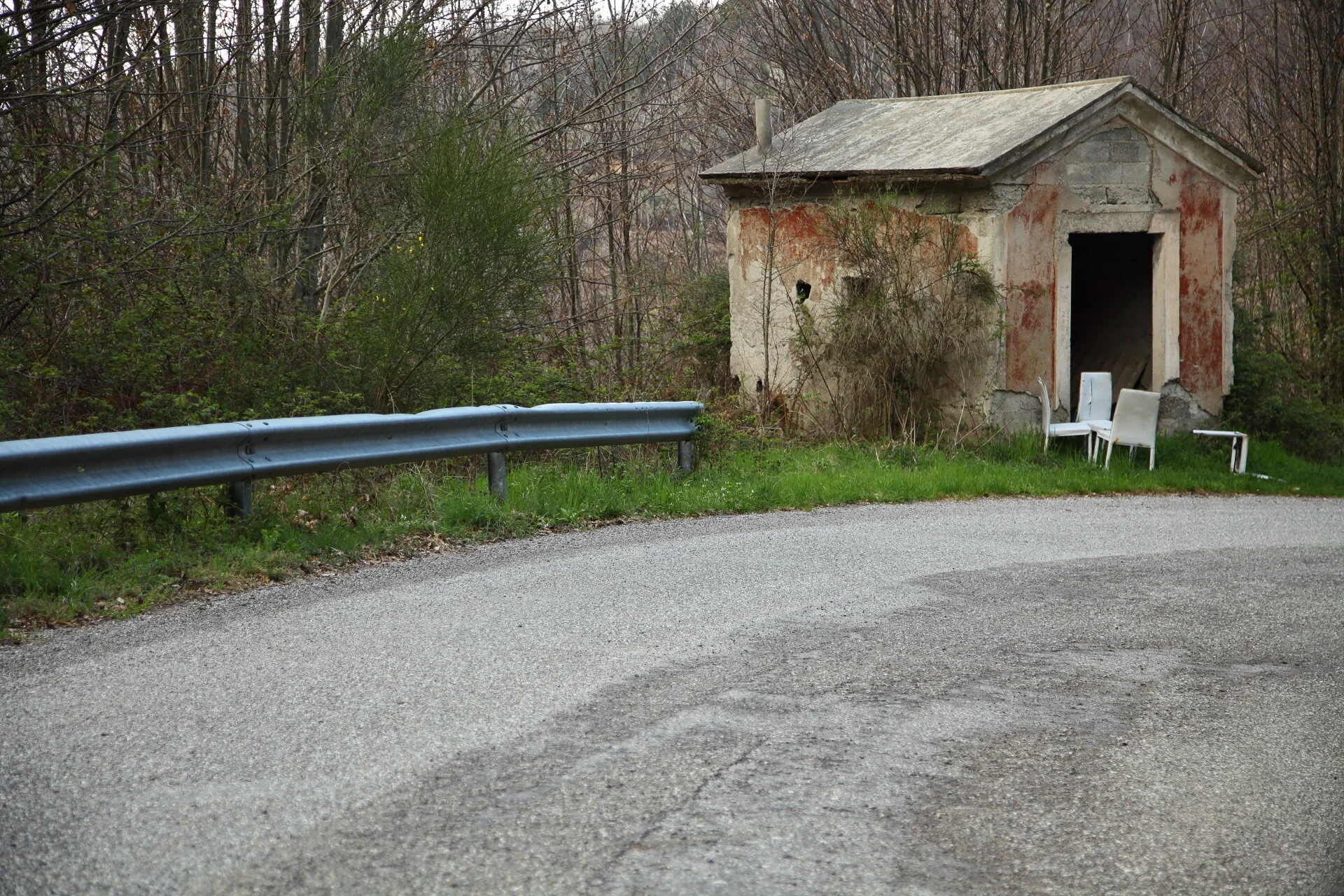




















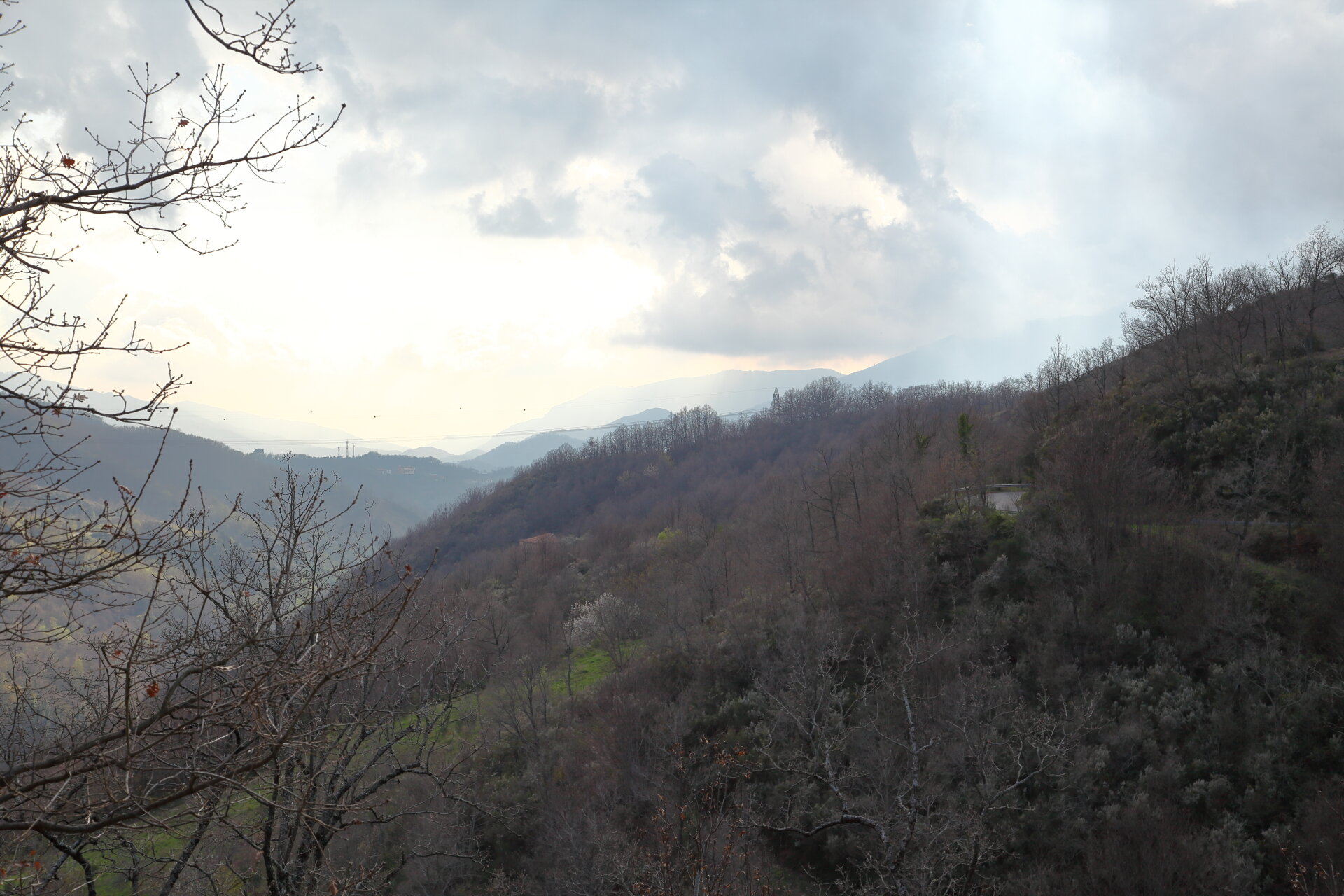


















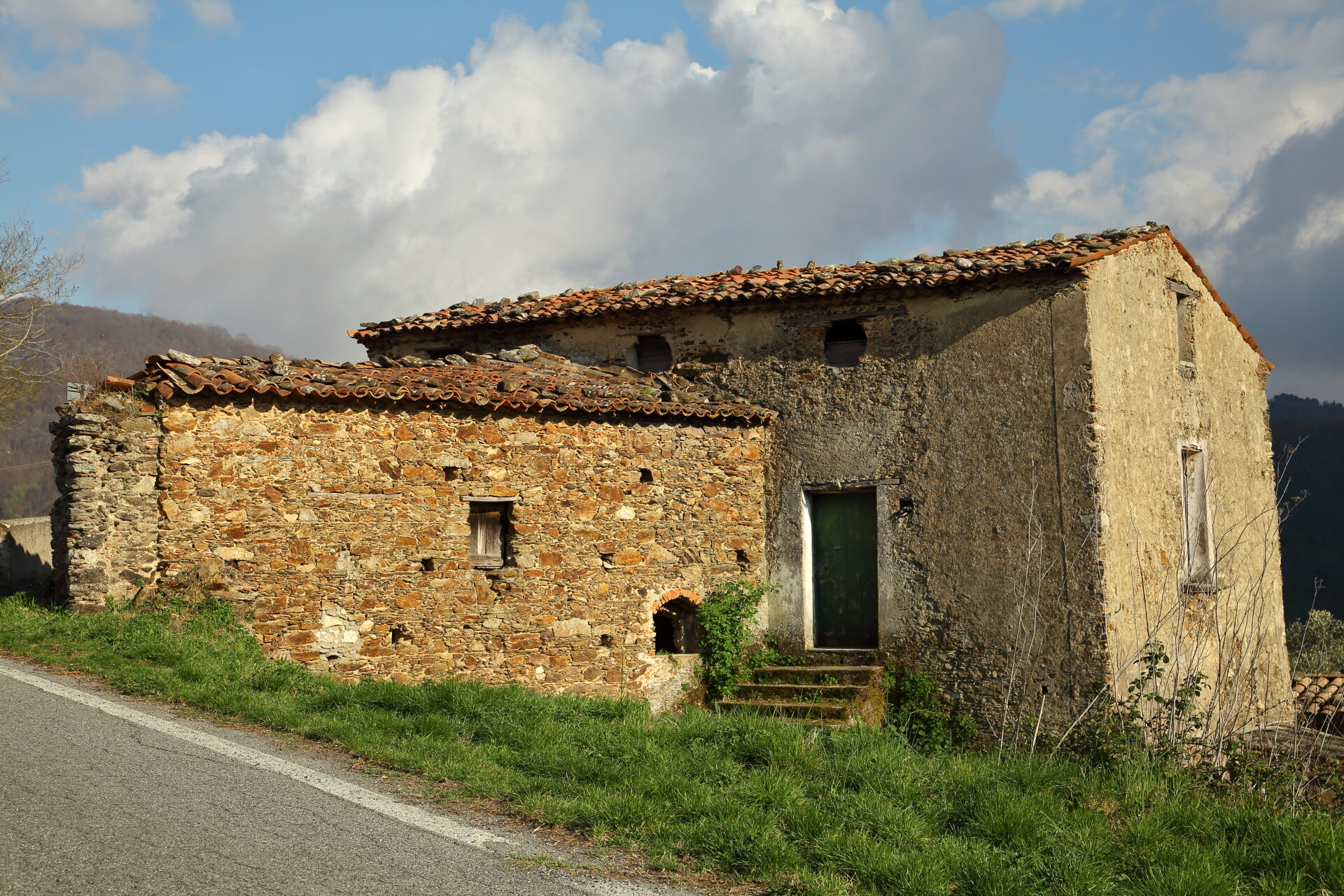









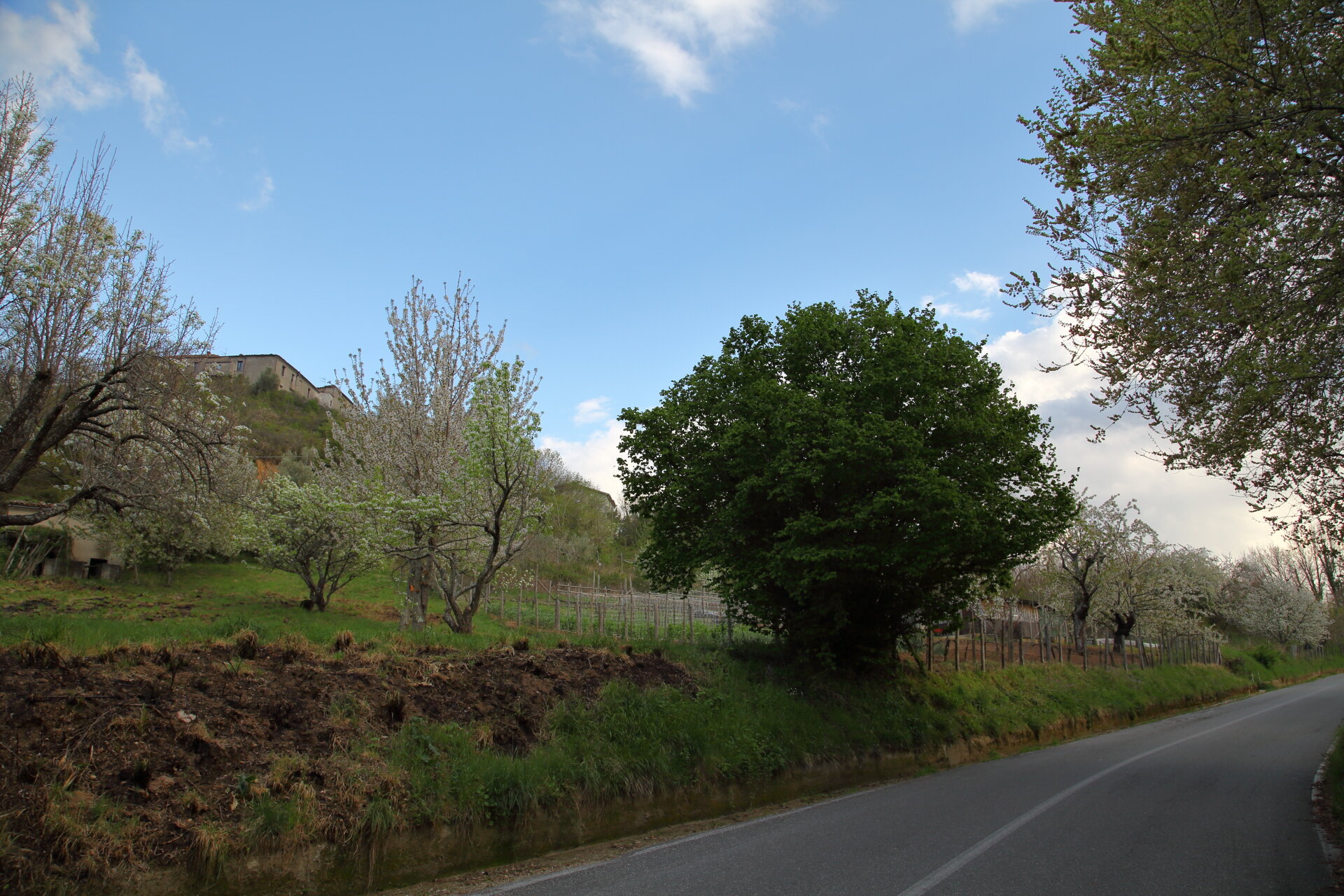





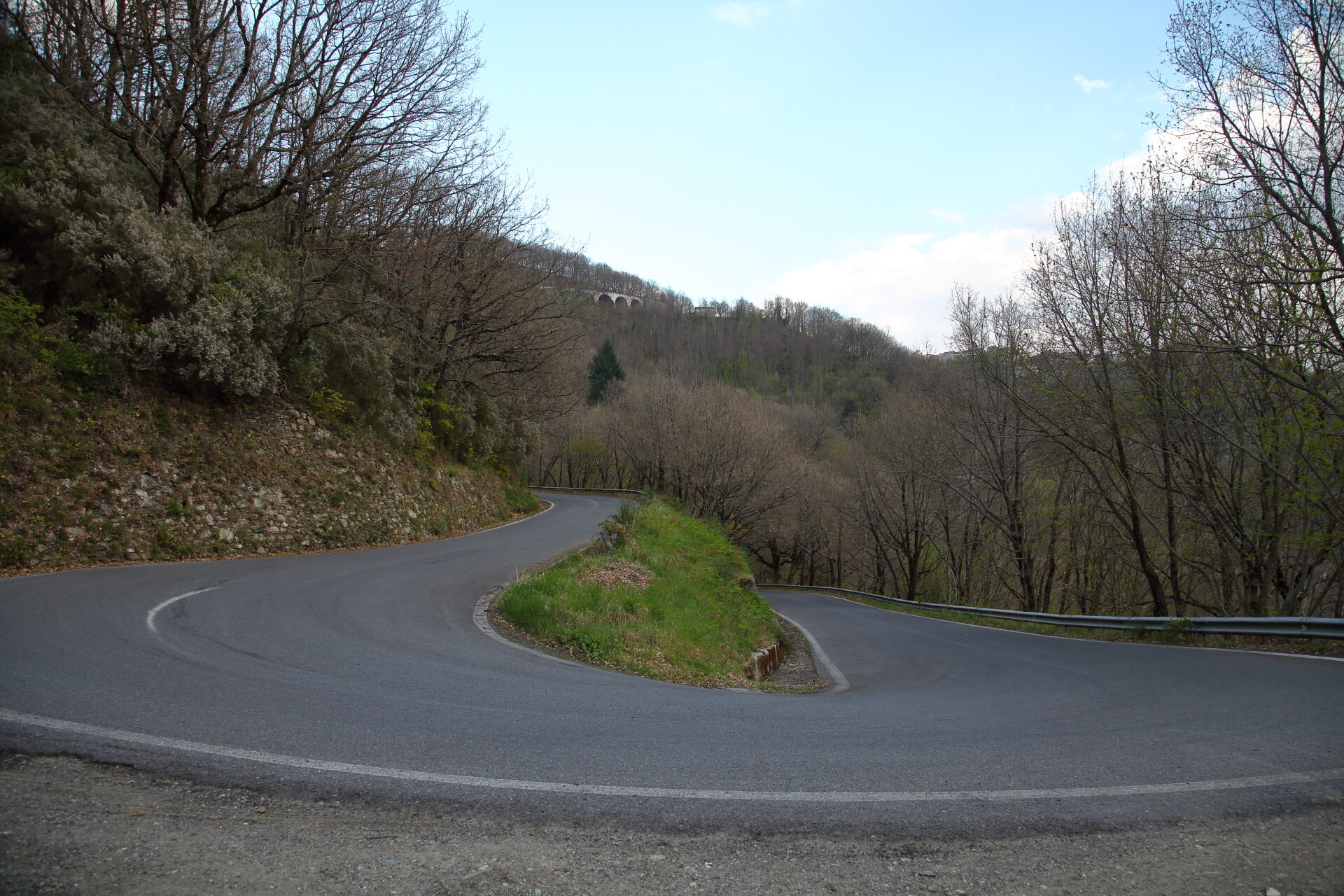








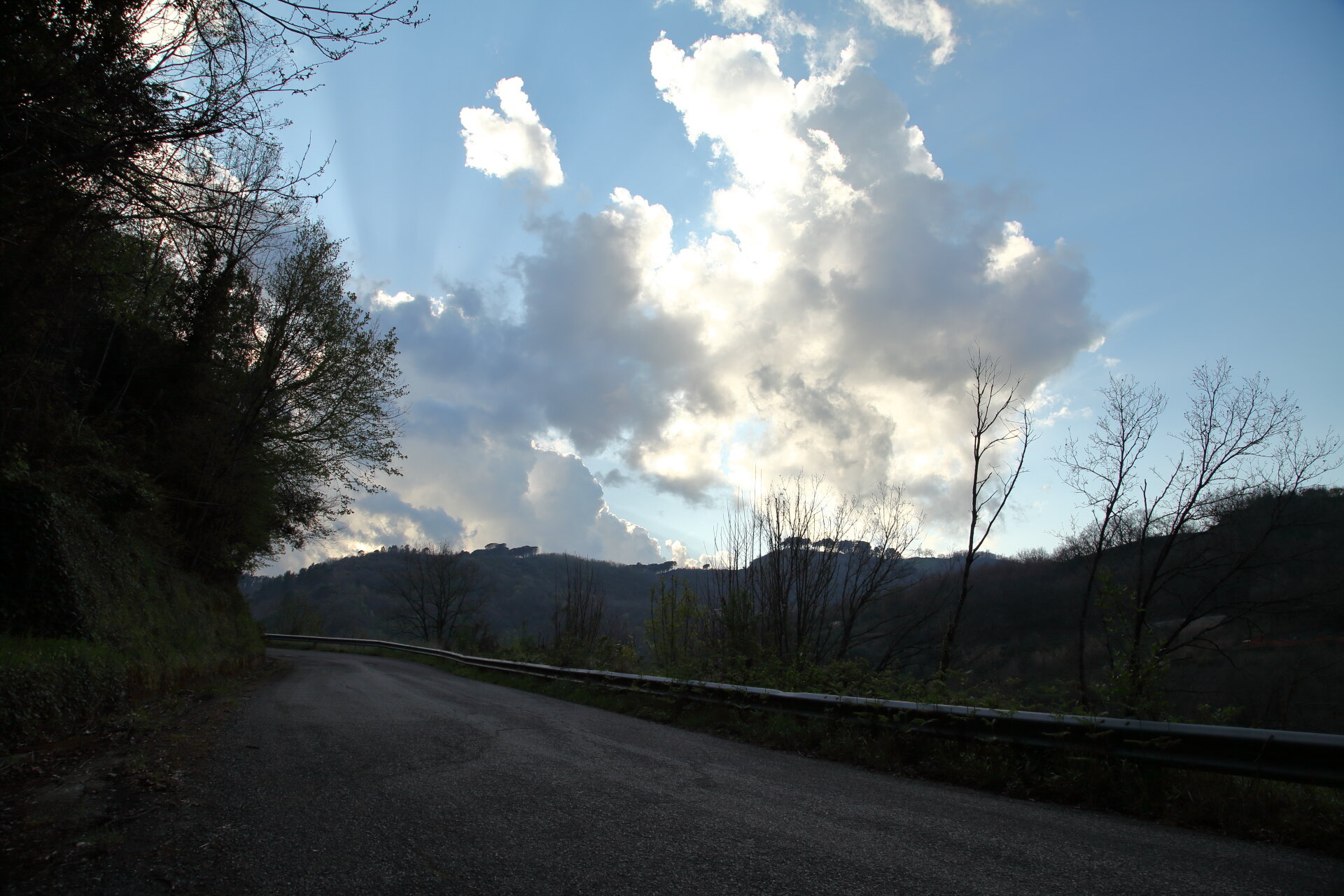






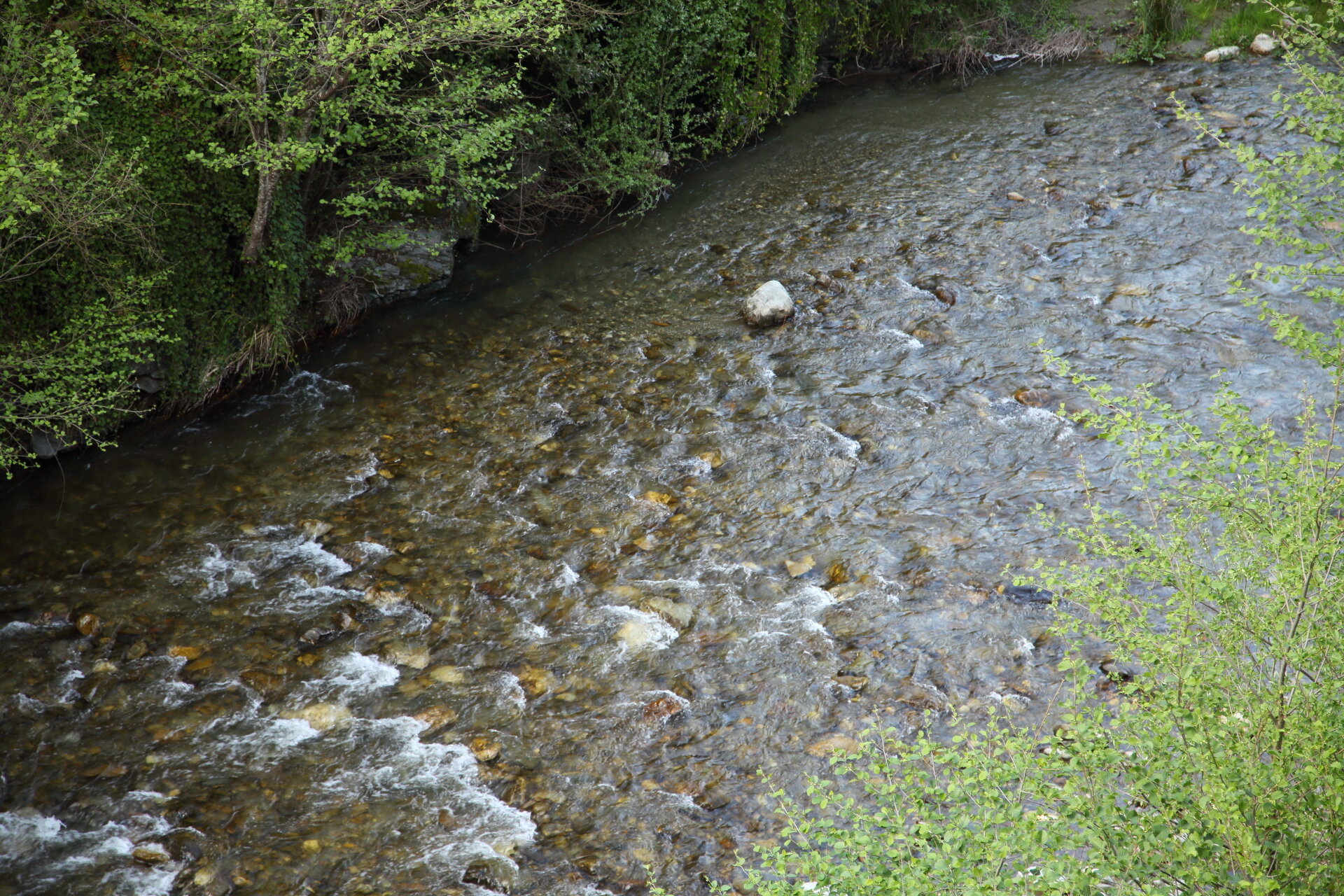



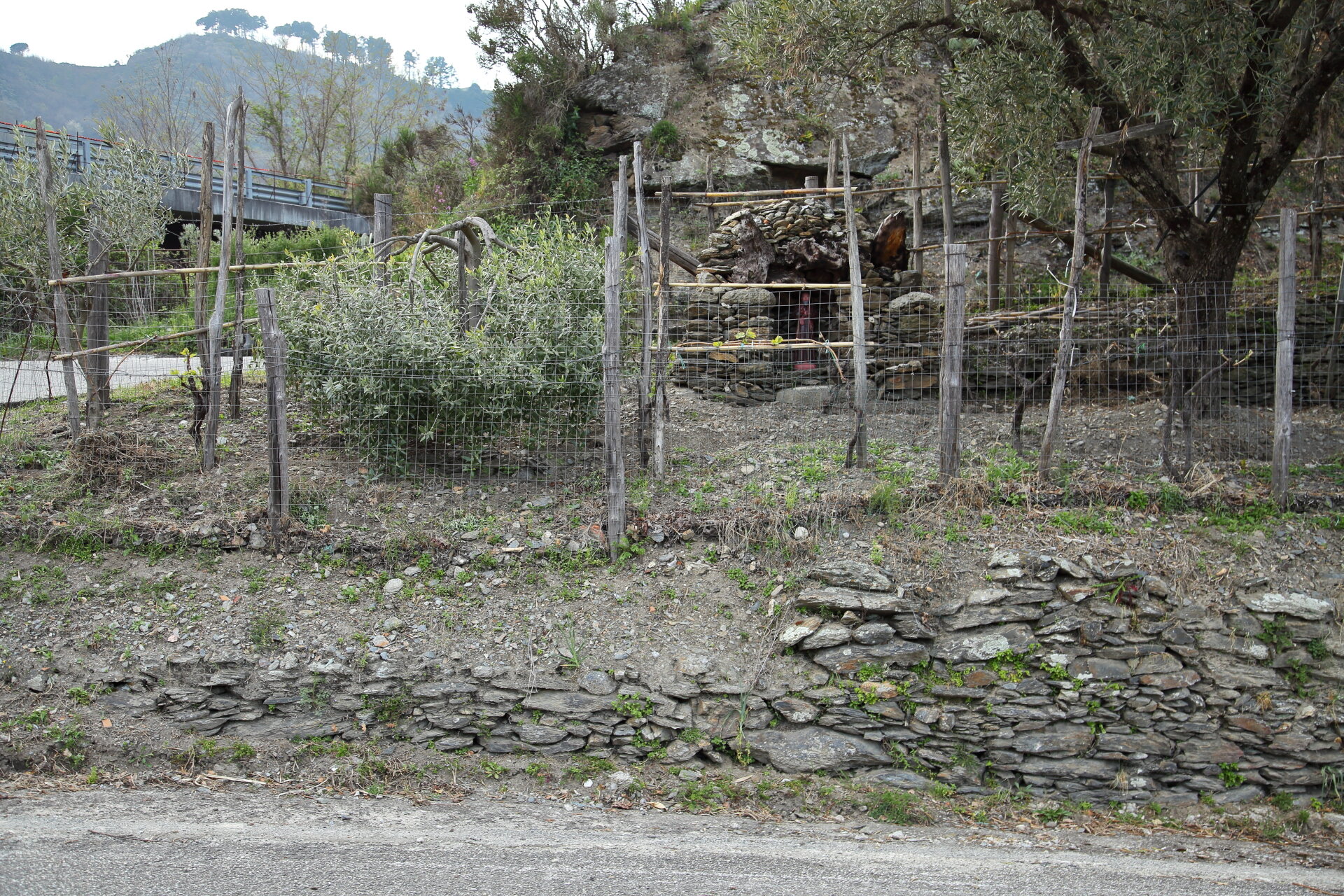





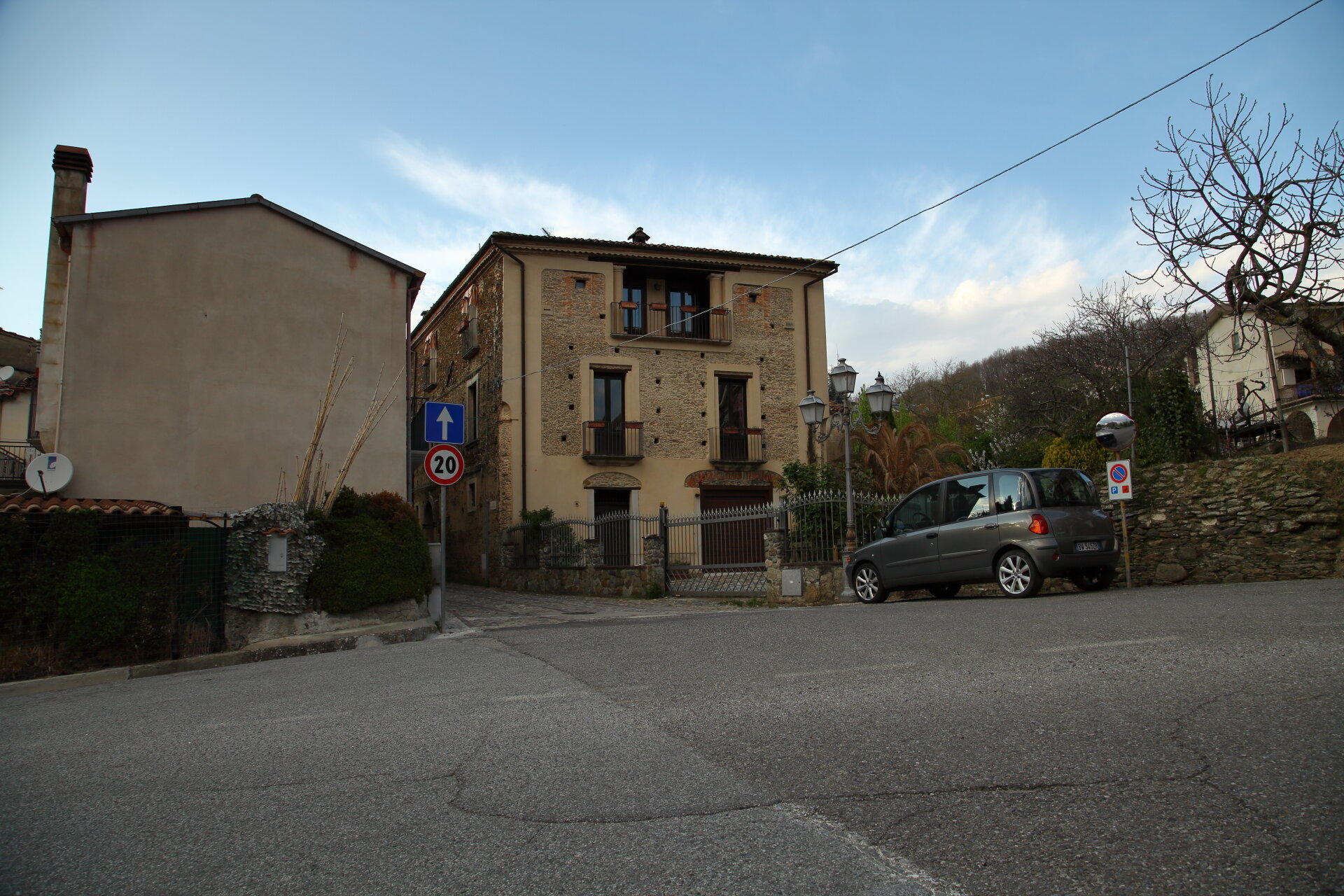





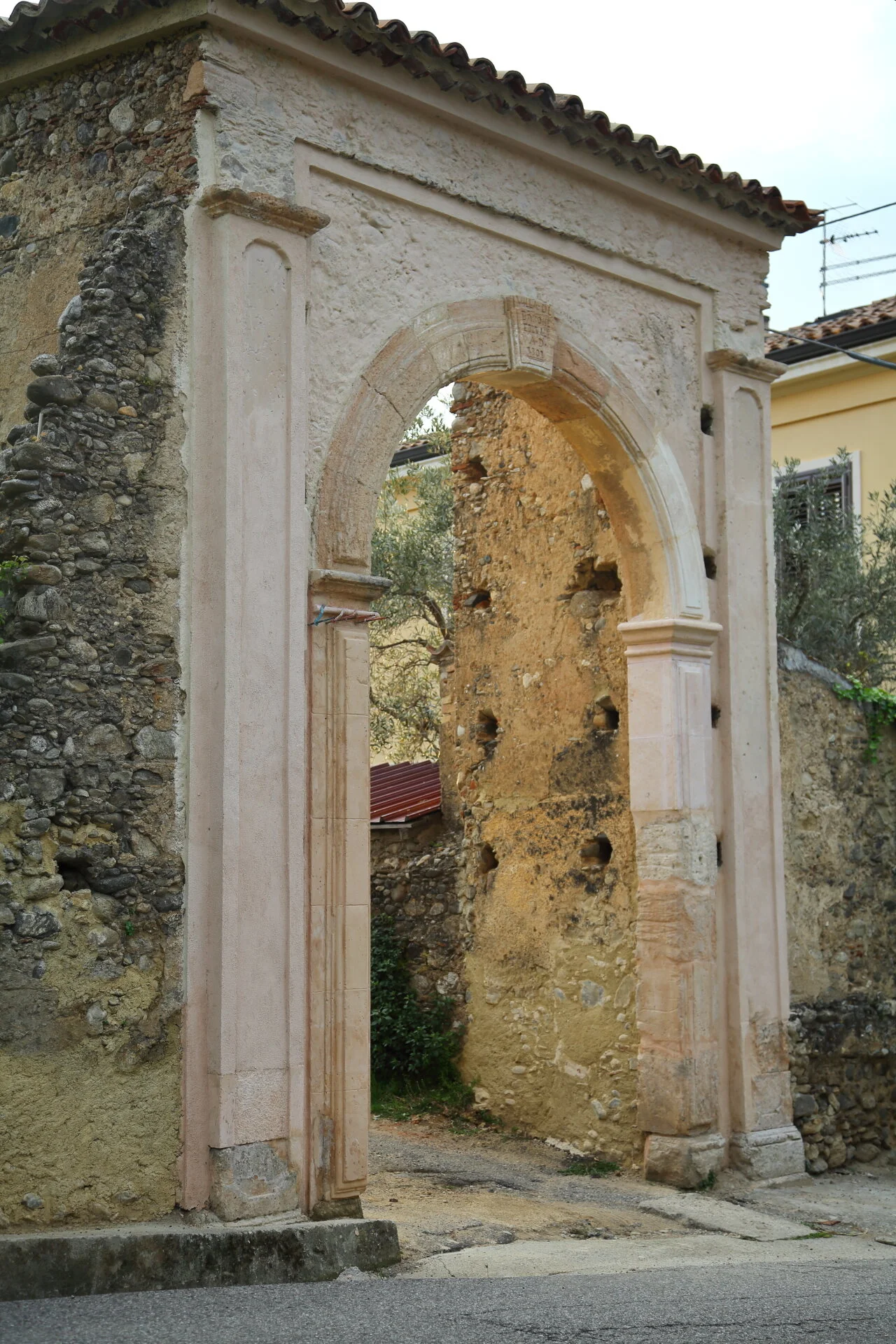
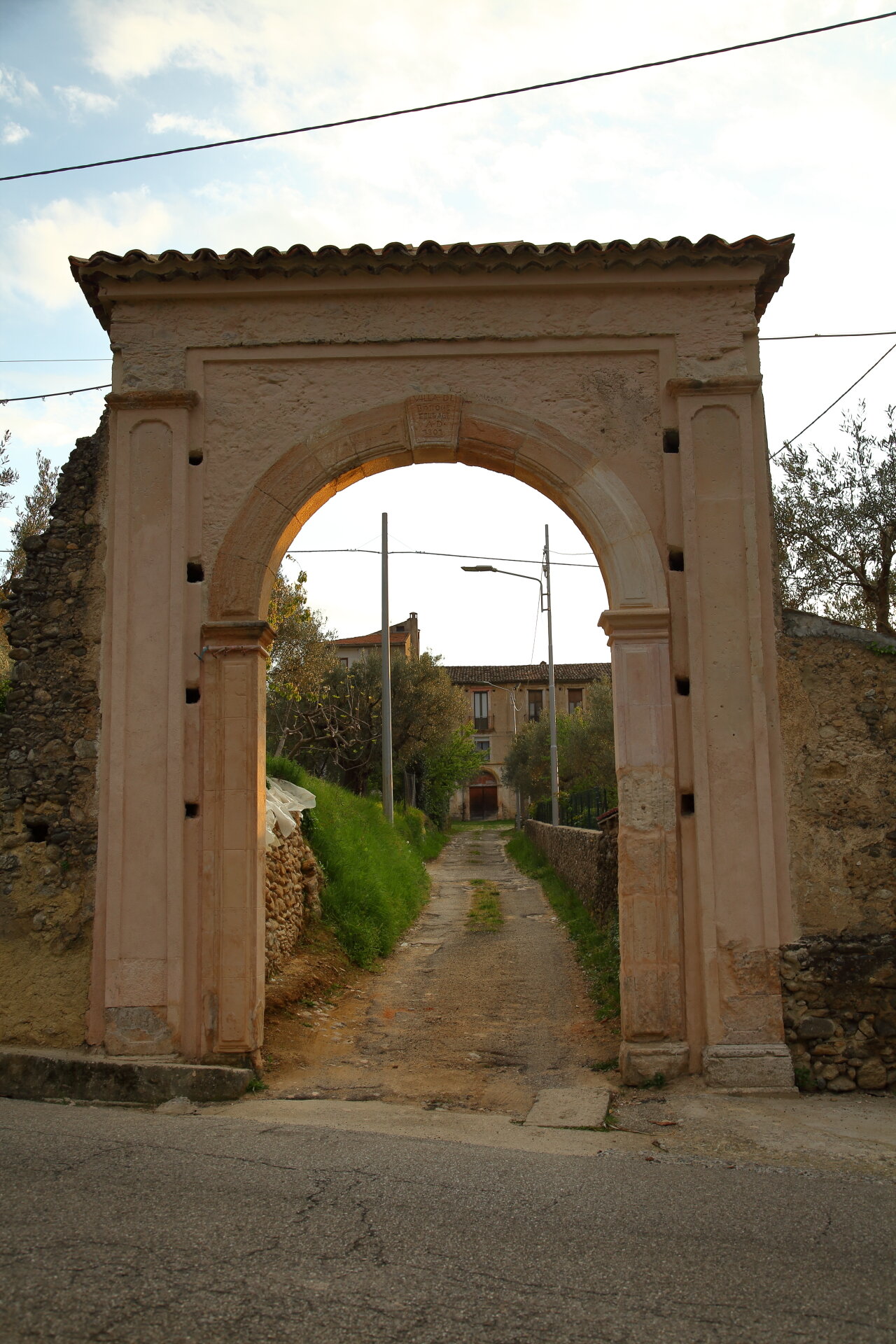

Soveria Mannelli
“She had been born the year it all happened , in 1860, when the great Garibaldi had crossed over from Sicily, and right there, at Soveria Mannelli, routed the Bourbon troops of the king of Naples in the name of the king of Italy. [...] At Soveria Mannelli they sold their last possession, the donkey, and bought bread and dried figs for the trip. Another bit of the money went to pay their way in the wagon that would take them to the sea. Umbertina was troubled at the small price Serafino got for the donkey.”

Cosenza
06:00 p.m. arrival
07:00 p.m. departure
“ They soon left the green forests along the mountain road that twisted down to the valley where Cosenza spread at the confluence of two rivers. [...] There they rested in a public park filled with marvelous plants Umbertina had never seen before-acacia, tall palms, eucalyptus, and cassia; she filled her leather flasks with water from the fountains, and as the family ate their coarse bread she looked at the finely dressed people who strolled through the gardens as if they had nothing else to do with their time. ”

SS n. 107 Silana-Crotonese
“ The olive grove was at the edge of a barren plain, where it began to ascend into the mountains to the west of Cosenza, and then again they were among trees and shade. [...] Once they passed a cross that Serafino said must have been set up to mark the place where a traveler was killed by bandits. But they, too poor to rob, passed unmolested.”

Paola
“ It was still light when they descended into the coastal town whose Calabrian saint, Francesco di Paola, was namesake of Paolo, the infant Umbertina carried in her arms. The boat from Messina would stop in Paola and take them on to Naples for their departure across the ocean. [...] There was no harbor; some fishing boats were pulled up on the sand; some people from the town had come down to wait at the shore for the boat from Messina. Dressed in uniforms, the dazio officials, contemptuous and discourteous, poked through the poor bundles of the emigrants and asked what they had to declare.”

Umbertina's dinner
Restaurant Il Castello
Homemade Fusilli (a local type of pasta) with fresh ricotta
Chicken breeder with rosemary
Mpacchiuse potatoes
Orange sherbet
Red Local Wine
Mineral Water
Coffee
Amaro calabrese alle erbe
















